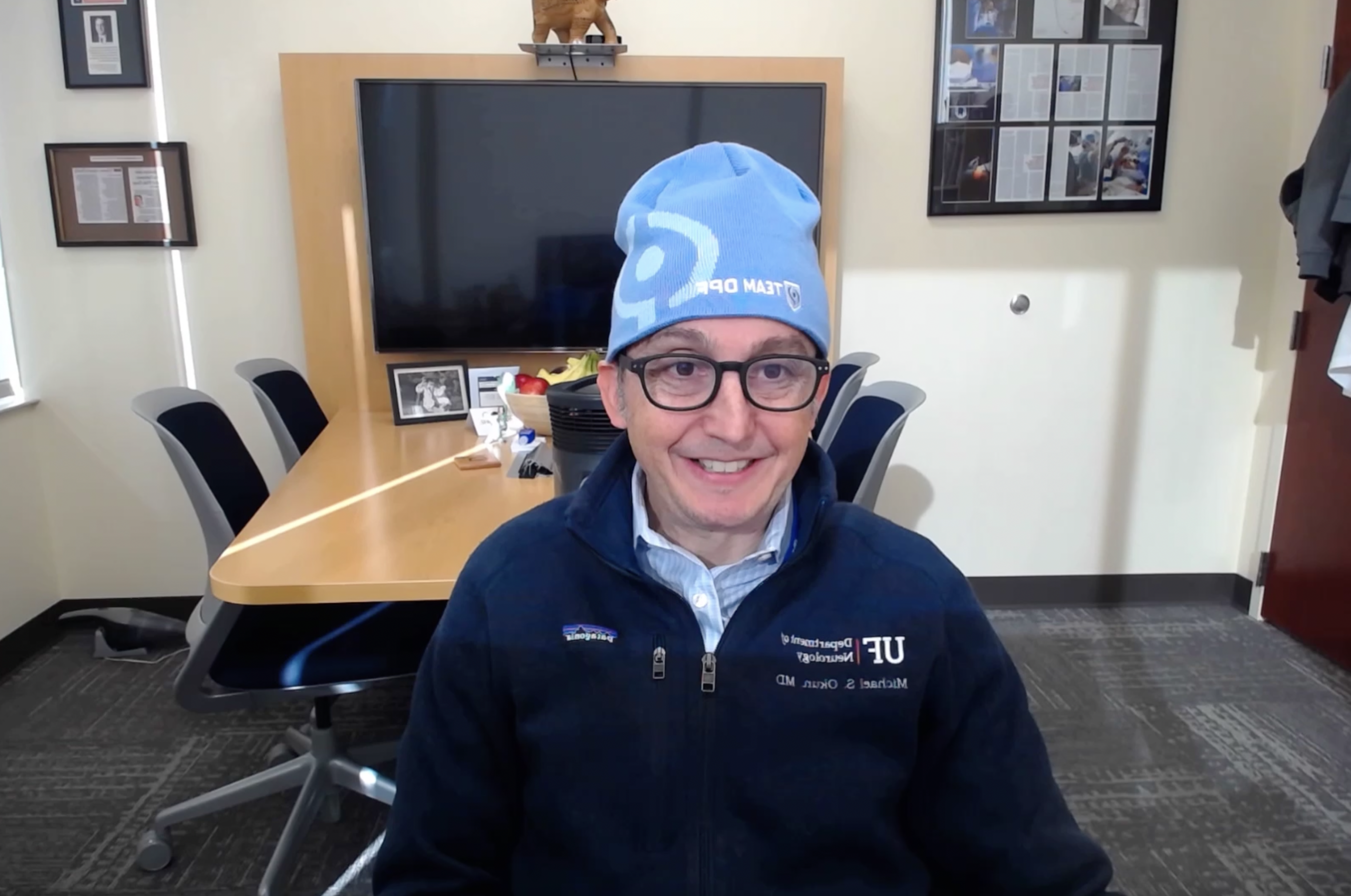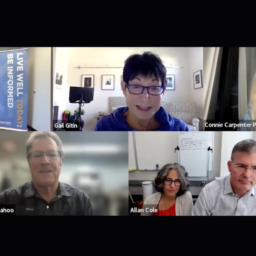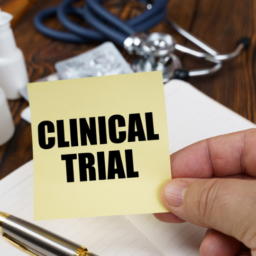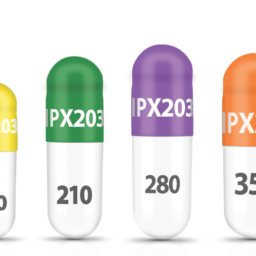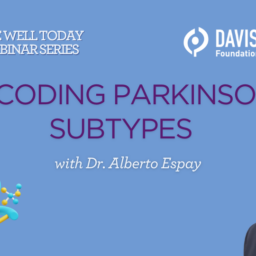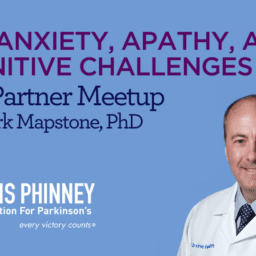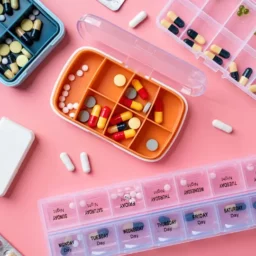To download the transcript for “Your Questions About Emerging Therapies,” click here or you can read the transcript below.
Michael Okun, MD (Movement Disorder Specialist, Chair of Neurology, Professor, and Executive Director, Norman Fixel Institute for Neurological Diseases, University of Florida Health College of Medicine):
Hey folks, I’m coming to you here to give you an update on your questions that you asked following the emerging Parkinson’s disease talk that we gave for the Davis Phinney Foundation, super cold here today, down in north Florida, we’re 36 degrees and Polly Dawkins, who’s the chief executive officer of Davis Phinney sent me this awesome hat after I did the presentation. And since I’m a Floridian, I got my space heater on. And so, let’s get to it. So here were your questions, can chair exercise produce brain changes and what about virtual reality exercises? Well guess what, any exercise, including when you’re in a chair. So, some people who can’t get out of a chair and also using virtual reality things, Oculus devices, virtual reality headsets can also induce brain changes in those areas, those brain networks that are important to showing improvements that we think are beneficial for Parkinson’s and for other diseases, as well as for general health.
So the answer is, yes. The second question, how many days a week should a person exercise? Well, we actually don’t know the answer to that, but we recommend that you do physical activity every day because exercise is like a drug. Also, for those of you that have been affected by the pandemic and have been inside, we’re seeing another pandemic, which is all these folks getting worse with their Parkinson’s disease because they haven’t been outside and they haven’t been exercising. And so, the recommendation is you don’t need to win a gold medal. Don’t need to go to the Olympics, but you should try to do something physical every day. Even if it’s just walking or doing some chair exercises every day for half an hour, maybe sitting in a recumbent bike, doing something that’s safe or getting some assistance. And so, try to do something every day.
Number three is meditation a form of mental exercise? You better believe it. It turns out that your brain is like a muscle. It’s a gigantic muscle, and you gotta work that muscle out to be able to improve your mental health. And in fact, not only can you improve your mental health, but there’s data now suggesting that you can improve other things like memory. Question four, can a medication like GOCOVRI, which is a form of a amantadine cause retropulsion. Well, first of all, GOCOVRI is a long acting drug that’s used mostly to suppress dyskinesia, but also can have a mild effects on improving Parkinson’s symptoms. Does it actually cause retropulsion, that’s when you fall backwards or when somebody tugs on you, you fall backwards. No, that’s part of Parkinson’s disease progression. So, if you’re seeing retropulsion, it’s usually not the medications GOCOVRI, levodopa, dopamine agonists.
That’s something you need to check with your team, your docs, your physical therapist, your personal trainers to get the right assistive devices and get the right optimization. Are keto or fecal transplants, what are they and do they have any value? This is question five. The answer is well, we are seeing really interesting things when we transplant the microbiome. Okay. And so that’s all the organisms that live in your gut, millions of ’em, right. Phages, bacteria. And when we are able to wipe them out and then put new microbiome in animals, this can be both a way that we can develop Parkinson’s in animals and we can try to treat it. And so, there’s a lot of interesting things going on with this, do we recommend you get a fecal transplant? Absolutely not. There are literally thousands of organisms, you know, tens of thousands, millions.
Okay. And so, we don’t know in each individual person, how we tweak that, what that’s gonna do. And so, taking, you know, taking these transplants and moving other bacteria into your gut at this time, probably not for human use, except in very controlled research studies, you should always look for informed consents and protocols, get them from the research project, bring them back to your docs and to your experts and make sure that, you know, what’s going on. When we talk about keto, we’re generally talking about ketosis, which is more of a diet. And there are some dietary supplements, some keto supplements that are showing improvements in things like constipation and particularly non-motor Parkinson symptoms. We don’t know a lot yet. We don’t know if they work for everyone, but we do know that in some of our folks who have Parkinson’s, when they go on these full ketotic diets, they pass out.
And so, the supplementary and partial ketosis might have some benefits. We need to learn a little bit more. So, don’t go doing that without you know, talking to your medical team. Question six, is there a place where I can donate cord blood from a person with Parkinson’s who passed to help in Parkinson’s research? This is one we get on the help line, actually not infrequently. And it turns out there’s no data to suggest cord blood for Parkinson’s disease is going to be useful in the future, at least at this moment. And so, there are places that will charge you a lot of money to store your cord blood. And these things are better for cancers than they are for degenerative diseases. So, at the moment we haven’t made that recommendation. There are all sorts of companies that will do this, but again, going down that road is not something we’re excited about because we’re not sure the cost benefit analysis is there, or that’s gonna be that useful, especially with all the new technologies for making dopamine cells and other things.
Question seven, if you have a broken bone with inflammation, will this alter your immune system? Well, yes, actually, if you have a broken bone or you have anything that is going on in your body, your immune system’s gonna react, it’s gonna send these inflammatory cells to sort of see what’s going on, help to rebuild. And so that can cause a reaction. Now, why might that be important in a Parkinson’s person? Well, that reaction might set off a cascade, might lead to infection, might lead to stress. Stress, anxiety, sleep deprivation, all make your Parkinson’s symptoms worse. So, when you break a bone and you have Parkinson’s, there can be real consequences. Particularly if you break a hip and a hip fracture can be really devastating in Parkinson’s. And so, you want to make sure to try to do everything you can to prevent fractures of the hip. Question eight, are there any probiotics proven to reduce symptoms?
There are certainly several probiotics that have been studied in the literature, and some are showing positive benefits for Parkinson’s, but here’s the straight truth on probiotics. They change your microbiome. They could make you worse. They could make you better. There might not be any change. We actually don’t know. We don’t know when to use ’em who to use ’em on. And it might be at some point that we’re gonna need to be able to get your individual microbiome, your readout, and trying to understand how to use these. And so, if you’re using a probiotic, don’t just assume that it’s gonna be good for you. If you’re not feeling better, certainly talk to your doc and come off of that probiotic. Okay? If you are feeling better, maybe it is helping, but we just don’t know enough about it, but consider the possibility it could have no change or make you worse.
Question nine, can you retrain your brain with an interactive metronome? That’s like one of these things that gives you, you know, a tick tock, tick tock, tick tock, you know, all the different timing. Okay. You can get timing from listening to music, from listening to the BeeGees, or you can get timing from marches, listening to different marches or different, different timed music. And so, can you retrain the brain in Parkinson’s by using the interactive metronome? Absolutely. What was really fascinating was Kristen Sowalski, when she was a graduate student here did a PhD thesis with Christopher Hass, they used interactive metronome versus songs like the BeeGees and others and showed that both can be effective. And in fact, some of these songs can really be effective in improving your walking. And so, the answer is, yes, you can with rhythms, not just with the interactive metronome, which is one way you can do it. You can retrain your brain.
Question 10, are there any emerging therapies for levodopa-induced dystonia? The answer is yes and no. So, remember most levodopa-induced dystonia. We now treat by if it’s too much levodopa that’s causing the dystonia, we try to either reduce the dose. We try to change the cocktail. We use deep brain stimulation, which is very powerful, sometimes dopamine pumps. And so, in terms of thinking about this, one of the things that we’re starting to key in on is the physiology. So, some of the newer deep brain stimulation devices, we can read off what’s going on during that dystonia. And there may be a chance for us to develop more specific therapies for levodopa-induced dystonia. Now, I want to point out to people when your toes curl, that’s called dystonia, okay. When the muscles fight against each other, when your hands curl, that’s called dystonia.
When your arm, you know, kind of comes up and comes tense and you get painful like this that’s dystonia in Parkinson’s, usually that’s an OFF phenomenon. And so, this question is asking about therapies when levodopa causes it. And so, most of the time we see it as a phenomenon where you don’t have enough levodopa, we give you more dopamine and it gets better. In the more rare condition when you get it from having too much levodopa. That’s a little trickier. Okay. And deep brain stimulation has been one of those really go-to therapies when we can’t adjust the medications. And so, I’m not aware of a specific drug yet that’s targeting, but I think when we understand the physiology better, that’s gonna help quite a bit.
Question 11, how can we speed up Parkinson’s drug development? Great question. We wrote about this in our recent book “Ending Parkinson’s Disease.” The National Institutes of Health is the largest funder of Parkinson’s disease research in the world. And it turns out that they put 250, maybe a little bit more, plus or minus, million a year into this. For other diseases like HIV, polio, cancers. It’s gonna take a 3 billion, two or $3 billion investment. So, we need to increase the amount of funding, the amount of projects that are going into the top of that funnel by 10 or more times. Okay? So, we need to increase the on funding. We need to increase the amount of projects that are being done. And then we need to work with the FDA on an operation warp speed for Parkinson’s. So, we can move these therapies through faster. So, it’s not gonna take 10 or 15 years to pull out a new drug, for example, from conception all the way to getting it to the folks that need it.
Number twelve, I’ve heard so much about research and promising therapies and clinical trials that address synuclein spreading in the brain. Where does it stand? Well, the bottom line is this. There is a protein in the brain that deposits, that protein has synuclein in it, alpha synuclein, and many people call this, the lewy bodies that deposit in your brain. It’s like, you get plaque on your teeth, you get plaque on your brain. Okay? So, there are all these therapies, including vaccines that are designed to sort of clear these lewy bodies away. And the big question now where things stand are, the big question is, will this help the symptoms, will this slow progression? Is there any chance this will cure? Probably not a cure, but could it slow progression or symptoms we need to see? And then side effects. Remember, we’ve seen these types of vaccines and approaches before, will there be side effects associated with these?
Okay. So, question thirteen, are there any non-drug methods that have had an impact on advanced Parkinson’s symptoms like memory, multitasking, and delusions? Answer, yes, absolutely. Context, social context, once we change and simplify those drugs down, then we need to work with people. And there are lots of techniques for training memory. There are lots of techniques for improving and I like to say folks that know me, I like to say, instead of multitasking, we talk about multitasking we should, instead of saying multitasking, we should teach people to monotask, so they’ll do better. And then one of the tricks I love to do is reading a book, a book on tape with somebody, go one chapter at a time, stop, talk about it, exercise that mind, it’s called stories memory. Once you all decide that you both understand the chapter, then go to the next chapter.
In terms of delusions and hallucinations, those can be more difficult to try to impact using non- drug methods. You have to see, does the person have insight or not? Are they dangerous or are they benign? Whether you’re gonna treat or not? In most cases in Parkinson’s, we do treat, but not in all cases. And there aren’t as many good therapies that can be employed aside from changing the medication regimens around and using medications that are safe in Parkinson’s that won’t make the Parkinson’s worse like clozapine, seroquel, quetiapine, pimavanserin. These are drugs that will be a little safer for folks because they won’t worsen the Parkinson’s symptoms.
Question 14, what types of symptoms have been positively affected by focused ultrasound? So, this is pointing a sound beam from outside the brain. It doesn’t, you know, cut into the brain. So, there’s no there’s no scalpel or anything, but it still makes a hole in the brain where those sound waves hit and they’re gonna pound the tissue and make a hole. So, it’s less specific than mapping it out with something like deep brain stimulation using a technique called micro electrode recording. But if you get it in the right spot, it can be powerful. Okay. The symptoms that have improved the most are tremor, for sure tremor. Okay. And the thalamus, which is the area of the brain where it was first approved for use in Parkinson’s disease and tremor, for people that have tremors or medication refractory tremors, tremors that aren’t responding to the medication, that can be a treatment for it. Again, it does destroy the brain tissue, but there’s not as much problem with infections and wires and tune-up. We’re not doing it on two sides of the brain because two sides of the brain may cause more side effects. And then when we move to other targets like the palladum, okay, that would be the GPI, we’re worried about hitting a structure called the optic track.
And that could lead to a problem with eye loss and losing quadrants, little squares that you can’t see in your vision. So that would be a treatment for dyskinesia, could it be developed. And then there’s a tiny target called the subthalamic nucleus. And if you could get in there, you might be able to get tremor stiffness, slowness with some lesions there, but again you know, a little less known, there are some studies, there’s some great studies by Martine and Obeso and colleagues from Spain. So, we’re looking forward to seeing what this therapy is gonna do.
What are my thoughts on B1 deficiency, question 15, and replacing B1 (thiamine) even in people who aren’t deficient with Parkinson’s disease? We’ve seen some literature on this, and here’s the bottom line, taking a regular multivitamin every that has vitamin B1 in it and is just a regular multivitamin is usually enough. There’s not a lot of replicable evidence that just pounding people with vitamin B1 is gonna make their Parkinson’s disease better. There are a few papers in the literature suggesting this, but I would suggest waiting for some replication before we jump on this bandwagon. At the moment, again, the best thing you can do is take one multivitamin a day.
Question 16, are there any links between Parkinson’s and dairy? Indeed, there are several really interesting studies on Parkinson’s and dairy. One of them was the Honolulu aging study. There’s now been several studies, including one recently from the Dutch group. There’s another study looking at what happens to the microbiome in response to milk products. And a lot of these studies have to do with risk and what type of milk you might be exposed to and your later risk to Parkinson’s disease.
That seems to be very interesting and we’re seeing it pop up in multiple studies. So, we think maybe there something here, the other interesting thing are these studies on microbiome and what milk does to the microbiome. And could it be changing certain things like lactobacillus inside your microbiome and causing changes that might risk you having Parkinson’s. Now, once you have Parkinson’s disease, having dairy, does that change your risk of getting Parkinson’s? No. You have Parkinson’s already. So, will it change symptomatically? Not sure. So, it doesn’t need mean that you should get off of dairy. And so, this might be more of an at-risk discussion. We might learn more if it affects certain people with certain types of microbiomes, what we’re just not there yet. Okay.
Now question 17, can a vitamin B12 deficiency be misdiagnosed as dementia caused by Parkinson’s disease? Well, absolutely. You definitely want to get vitamin B12 checked every once in a while. And particularly if you’re having thinking problems in your Parkinson’s disease. If you have a low B12 level, they need to investigate why you have a low B12 level. There are disorders like pernicious anemia, for example, that you may have to change your diet, or they may need to put you on some medications. And if you correct the B12, if it’s really low, that can actually improve your thinking. And so, it can be a mimicker, a mimicker, it looks like Parkinson’s dementia, and it’s really B12 deficiency. So it’s never, never a mistake to check a B12 level if you’re having thinking problems with your primary doc in your regular visit. Most of the time it’s gonna be no normal, but if it isn’t, it’s treatable.
Question 18 commenting on glove therapy coming out of multiple universities, including Stanford University. Sure. So, there are these wonderful devices that people are developing in the lab now, and they are gloves that you can put on and the gloves have all sorts of sensors. And these sensors may to equalize things like tremor in certain folks, particularly people with mild to moderate tremors, okay? Maybe some other symptoms as well. It’s early days. They may help some, they may not help others. They may change. It may help you now, it may not help you later. And so, we don’t know a lot about it, but it’s pretty interesting now we’re getting better at putting together these types of interventions using technologies. Question 19, what is P2B001? Well, P2B001 is a drug. Okay. And a lot of times before drugs get names, they are given numbers. So, it’s a low dose sustained release combination of a dopamine agonist, pramipexole, Mirapex and a drug called rasagiline. Okay. Rasagiline, and they put those two together. It’s a combination therapy. You can still get these drugs independently. And so that is what that study is all about.
Question 20, what is a nutraceutical? Well, a nutraceutical is actually a pharmaceutical alternative. So, it’s something that’s an alternative to something that maybe FDA approved and on the market. And it claims to have some sort of benefit, like a physiological benefit. They are largely unregulated. Okay. Which means that the FDA and other things, they don’t have jurisdiction over them. So, they exist as dietary supplements, food additives, and and they may have some oversight depending on what they have in them, but you have to be careful. You don’t know what’s in them. You don’t know what they do. You don’t know the bioavailability, even if they did something, do they get in your bloodstream enough to change the symptoms that you have?
Nutraceuticals are a multi-billion dollar business. They make all sorts of claims because they don’t have to adhere to the same level of scrutiny as regular drug companies. So, you have to be very careful, they’re in it to make a buck. And so maybe they had something, maybe they don’t, but that’s what a nutraceutical is.
And finally, question 21 is using turmeric or curcumin safe as a diet supplement? Well, for those of you that love Indian food, and I love Indian food. These are things that are in Indian food. Turmeric, curcumin, very common. Okay. If you look collectively across studies, foods that have lots of this, and lots of exposures might slightly impact the risk of getting Parkinson’s. We don’t know what it does symptomatically, and it may be symptomatically different depending on what your microbiome is, but there’s absolutely a no harm to eating foods with turmeric or having dietary supplements with turmeric or curcumin. Okay. Don’t overdose. You don’t need a lot of it. Okay. But and obviously watch out because it could be mixed with something else. So, if it’s not pure, then that changes the game. We need to know what’s in that supplement.
So, these were your awesome questions that you asked for the Davis Phinney Foundation, emerging therapies, and Parkinson’s disease talk to kick off 2022. Love it. Thank you for the hat Polly Dawkins. It’s a cold 36-degree day here in Florida and north Florida at the University of Florida at the Fixel Institute for Neurologic Diseases. Got my space heater on here. You can connect with the Davis Phinney Foundation on their DPF website. And you can also check us out at our Parkinson’s Secrets, Indu Subramanian, Johnny Acheson and I will put up lots of interesting things on new studies and blog, and we can converse there. We’re also on Twitter and Facebook and Instagram. You can just @MichaelOkun, really easy. I’m happy to always interface with the community. I learn so much from everybody. It’s such an honor to be with you and take care and let’s get through this together. Bye bye.
We recently hosted a webinar with Dr. Michael Okun about the latest advancements in emerging therapies for Parkinson’s. You can access the recording and related resources here. We received so many questions during the session that we weren’t able to answer them all; so, Dr. Okun was kind enough to answer your questions in a follow up video. You can also find them written below.
show notes
Can chair exercises produce brain changes, and what about virtual reality exercises?
Yes, any exercise, including chair and virtual reality exercises, can produce changes in brain areas that are beneficial for Parkinson’s and other diseases.
How many days a week should a person exercise?
There is no single answer to this question. It is generally recommended that a person moves in some capacity every day. You don’t need to win an Olympic medal but do something physical every day.
Is meditation a form of mental exercise?
Absolutely. The brain is like a giant muscle, and you have to work that muscle every day to improve mental health.
Can a medication like GOCOVRI® (a form of amantadine) cause retropulsion?
GOCOVRI® does not cause retropulsion (falling backwards). Retropulsion is part of the progression of Parkinson’s.
What are keto or fecal transplants, and do they have any value?
Fecal transplants have to do with the gut microbiome, and while we are seeing some interesting possibilities in this area, there is no solidified research on the value of this kind of transplant.
When people talk about keto or ketosis, typically they are referring to a keto diet. We are seeing some interesting effects of a keto diet on constipation and non-motor symptoms, but we don’t know a lot yet, and so it would be highly beneficial to discuss this with your medical team.
Is there a place where I can donate cord blood from a person with Parkinson’s who passed to help Parkinson’s research?
There’s no data to suggest that cord blood is going to be beneficial for Parkinson’s research in the future. It tends to be more helpful for cancer than degenerative diseases. So, there are many places that will charge a large amount of money to store cord blood, but at this time, this is not something we’d recommend.
If you have a broken bone with inflammation, will this alter your immune system?
Yes, if you have a broken bone, your immune system is going to respond, sending anti-inflammatory cells to rebuild the bone. This can cause a reaction which can set off a cascade, potentially leading to an infection or stress. Infections, stress, and lack of sleep can all greatly impact your Parkinson’s symptoms.
Are there any probiotics proven to reduce symptoms?
The straight truth of probiotics is they change your gut microbiome. This could make things better; this could make things worse. Honestly, we don’t know what probiotics to use and who to use them on. So, talk to your doctor about this possibility, and be aware that probiotics could have no change or even make things worse.
Can you retrain your brain with an interactive metronome?
Yes, absolutely. Rhythm in music, whether through a metronome, a Bee Gees song, or a march, can be especially helpful in walking.
Are there any emerging therapies for levodopa-induced dystonia?
Yes and no. Remember that most dystonia occurs during an OFF period, meaning that when you take more levodopa, the dystonia will likely improve. In the rare case that levodopa is causing the dystonia, as is the case in this question, the primary treatment option that may be considered is deep brain stimulation (DBS). When we understand the physiology of this phenomenon more in the future, we may understand more treatment options.
How can we speed up Parkinson’s drug development?
We need to increase the funding and increase the number of projects that are going on, while working with the FDA to produce an Operation Warp Speed for Parkinson’s, so that therapies and treatments are going through the system faster.
I’ve heard so much about research and clinical trials that address synuclein spreading in the brain, where does it stand?
Over time, the brain builds up plaques (Lewy bodies) much like your teeth build up plaques. There are many therapies including vaccines, designed to clear these plaques away. The big question is, will this improve symptoms, and will this slow down progression? These two things may be possible, but there is further research needed to determine the impact of the side effects of these treatments.
Are there any non-drug methods that have had an impact on advanced Parkinson’s symptoms such as memory, multi-tasking, and delusions?
There are many techniques for training memory. We can first focus on “mono-tasking” rather than multi-tasking so people can do better. I also often recommend “stories memory”, which involves reading a section of a story with another person, discussing what happened in that section, who were the characters, etc., and then moving onto the next section.
Delusions and hallucinations are a little more difficult to treat without drugs. One must take into consideration whether these symptoms are dangerous to the person or to others. If medications are used, the side effects of those medications also have to be considered.
What types of symptoms have been positively impacted by focused ultrasound?
Tremor is the symptom most positively affected by focused ultrasound (FUS). If FUS were able to reach the subthalamic nucleus, there could be potential improvement in things like stiffness and slowness. More research needs to be done to be able to do that procedure safely.
What are your thoughts on B1 deficiency and replacing B1 (thiamine)?
The bottom line is that taking a multivitamin that has B1 in it is usually enough. There is little data that suggests that giving a person high doses of vitamin B1 will make their Parkinson’s better.
Are there any links between Parkinson’s and dairy?
Yes, there are several interesting studies on Parkinson’s and dairy. At the moment, the link between dairy and Parkinson’s is a discussion about how the consumption of milk may increase risk of getting Parkinson’s, but we don’t have enough research to understand if dairy has any impact on the symptoms or progression of Parkinson’s.
Can a vitamin B12 deficiency be misdiagnosed as dementia caused by Parkinson’s?
Yes, absolutely. You should to get your vitamin B12 levels checked every once in a while. If your B12 is low, and they correct it, that can improve your thinking. So, it’s never a mistake to check it. Most of the time, your levels will be normal, but if it’s not, it’s easily treatable.
What can you tell us about glove therapy?
Glove therapy is essentially a device (a hand glove) with sensors in them. These sensors may be able to equalize mild to moderate tremors in some people. We don’t know a lot about it yet, but it has definite potential.
What is P2B001?
P2B001 is a drug. Often, in the clinical trial phase before drugs get named, they get numbers. This drug is a low dose sustained release combination of a dopamine agonist (pramipexole/Mirapex) and a drug called rasagiline. It’s a combination therapy. Both pramipexole and rasagiline are drugs that can be taken separately.
What is a nutraceutical?
A nutraceutical is a dietary supplement made from foods or food-like substances and are used as a complement or an alternative to a pharmaceutical. Because they’re not regulated like a pharmaceutical, they have far fewer standards they have to adhere to, and so when using a nutraceutical, it’s of particular importance to use with caution.
Is using turmeric or curcumin safe as a dietary supplement?
Across several studies, there is some suggestion that a high consumption of these can increase the risk of getting Parkinson’s. But there are no studies to suggest any impact of turmeric or curcumin once you have Parkinson’s, so there’s no harm is eating foods or taking supplements with turmeric or curcumin, but don’t overdo it.
more about Dr. michael okun

Dr. Michael Okun received his medical degree with honors from the University of Florida. He was fellowship-trained by Mahlon DeLong, Jerrold Vitek, and Ray Watts at Emory University in Atlanta, Georgia, before founding the movement disorders program at the University of Florida. He is currently Chair of Neurology, Professor, and Executive Director of the Norman Fixel Institute for Neurological Diseases at the University of Florida Health College of Medicine. He is a co-author of Ending Parkinson’s, Living with Parkinson’s Disease and Parkinson’s Treatment: 10 Secrets to a Happier Life.
LIVE WELL TODAY WEBINAR SERIES PRESENTING PARTNERS*
 *While the generous support of our sponsors makes our educational programs available, their donations do not influence Davis Phinney Foundation content, perspective, or speaker selection.
*While the generous support of our sponsors makes our educational programs available, their donations do not influence Davis Phinney Foundation content, perspective, or speaker selection.


